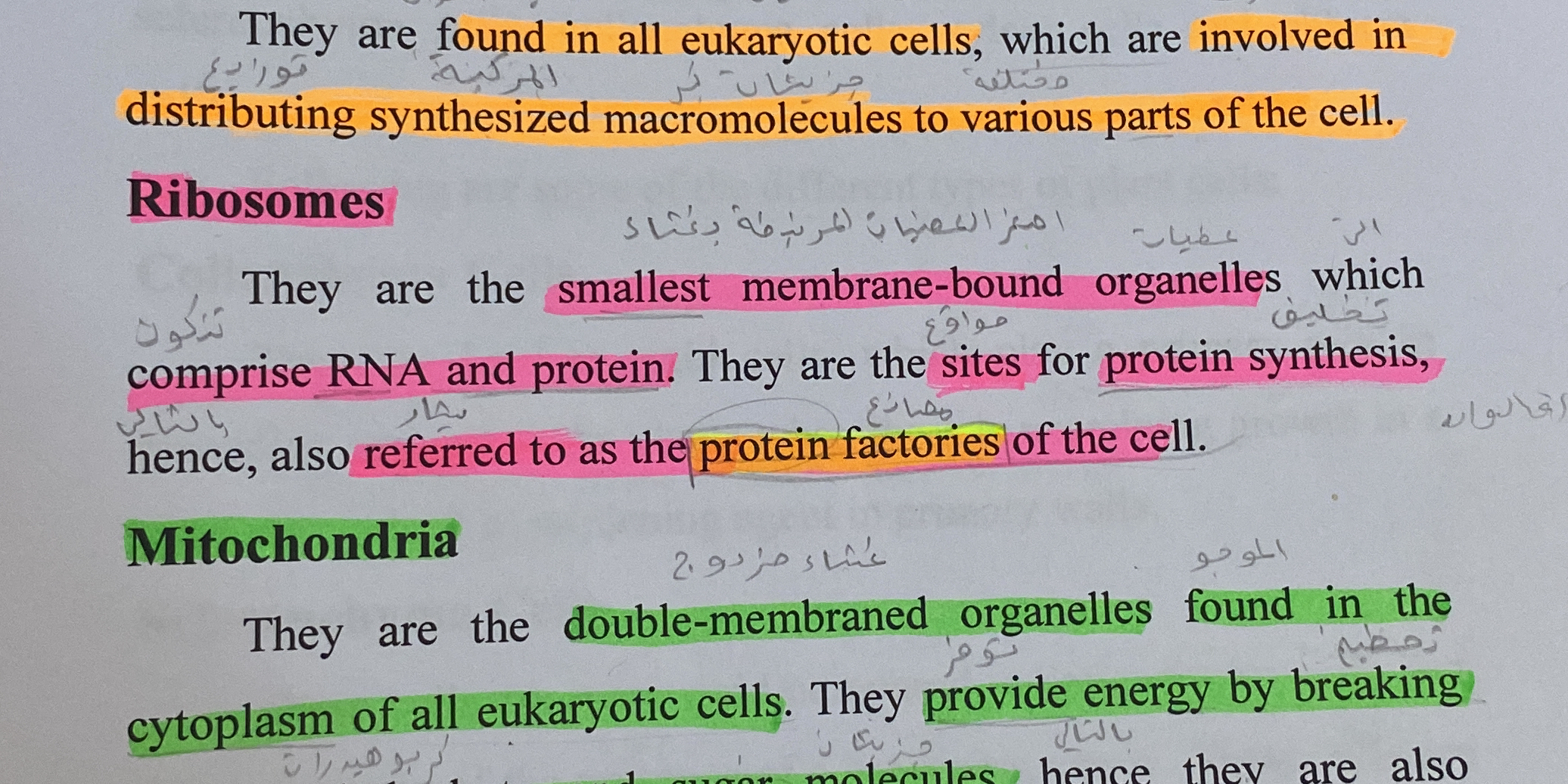What are the functions of ribosomes and mitochondria in eukaryotic cells?

Understand the Problem
The question is focused on describing the functions and characteristics of ribosomes and mitochondria in eukaryotic cells, including their roles in protein synthesis and energy production.
Answer
Ribosomes synthesize proteins; mitochondria produce energy (ATP).
Ribosomes are responsible for protein synthesis in eukaryotic cells, acting as the site for translating mRNA into proteins. Mitochondria generate energy by producing ATP through the breakdown of glucose, serving as the cell's powerhouse.
Answer for screen readers
Ribosomes are responsible for protein synthesis in eukaryotic cells, acting as the site for translating mRNA into proteins. Mitochondria generate energy by producing ATP through the breakdown of glucose, serving as the cell's powerhouse.
More Information
Ribosomes are found in all living cells and are crucial for protein production. Mitochondria not only generate ATP but also have their own DNA and ribosomes, highlighting their evolutionary history as once-independent organisms.
Tips
A common mistake is confusing the location of ribosomes (free in cytoplasm or attached to the endoplasmic reticulum) with mitochondria, which are solely involved in energy production.
Sources
- Ribosomes and Mitochondria - Biology LibreTexts - bio.libretexts.org
- Mitochondria - The Cell - NCBI Bookshelf - ncbi.nlm.nih.gov
AI-generated content may contain errors. Please verify critical information